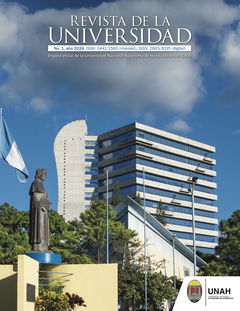Analysis of Master's training in Actuary world level based on the Ranking EDUNIVERSAL Best Masters
DOI:
https://doi.org/10.5377/ru.v1i1.19160Keywords:
Actuaria, finance, master’s degree, competenciesAbstract
Actuarial science, as an essential discipline focused on the management of financial risks in various economic contexts, serves to evaluate and manage uncertainty, especially in the insurance and banking sectors, through the use of mathematical and statistical analysis. It currently plays a significant role in the local and international economic, financial, and political fields, as the demand for university-trained professionals in the field is increasing. These professionals are distinguished by their solid knowledge for decision-making related to risk, their contribution to the development of strategies for mitigating adverse impacts, their ability to write comprehensive technical reports, and their competence in various sectors, including insurance, banking, and consulting. To meet the demand for university-trained professionals in the aforementioned area, the National Autonomous University of Honduras (UNAH) will offer a master’s degree in actuarial sciences to the Honduran population. Therefore, this article aims to share the experience of exploring the competencies imparted by similar training programs worldwide, contrasting them with the demands of the Central American labor market, specifically within the Honduran context. The study was conducted using a mixed research approach, which combines the analysis of quantitative and qualitative data, to gain a more comprehensive understanding of the subject under investigation and to make appropriate decisions accordingly. It involved examining the general and specific competencies developed by this collective, as well as the areas of study and the academic structure of the aforementioned training offerings, which stand out in the EDUNIVERSAL ranking. This ranking considers the best business schools globally through a meticulous selection and classification process based on internationalization and peer recognition, as well as their practical application in the professional environment. The main findings highlight the importance and necessity of related training in Honduras, which balances theory and practice. This emphasizes the need for university training programs in the region that not only focus on addressing the mathematical and statistical fundamentals of the field but also prepare future professionals to apply this knowledge in financial analysis, risk management, and strategic decision-making within the actuarial sphere. Thus, the study concludes by urging higher education institutions in Honduras to expand educational offerings in Actuarial Science, thereby strengthening the country's financial sector, improving its integration into the global market, and preventing those seeking related university training from pursuing educational alternatives abroad.
451
Downloads
Published
How to Cite
Issue
Section
License
Copyright (c) 2024 Revista de la Universidad

This work is licensed under a Creative Commons Attribution-NonCommercial-ShareAlike 4.0 International License.




